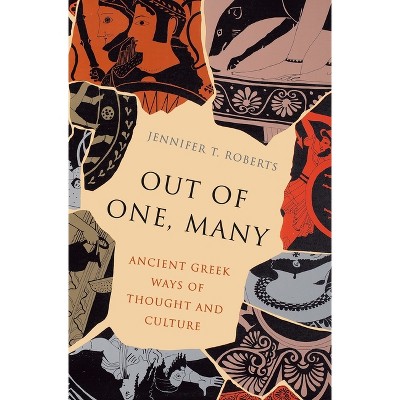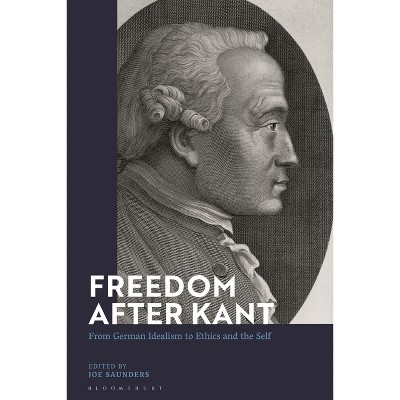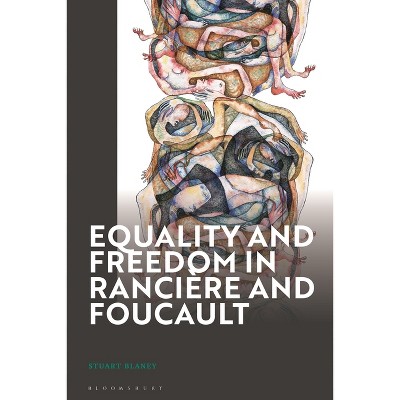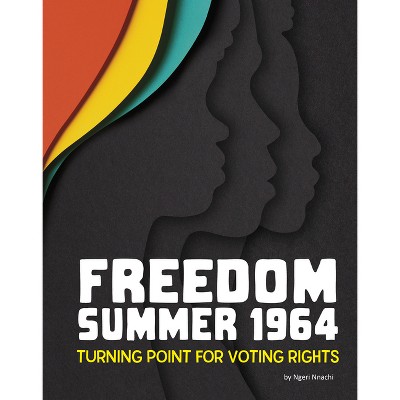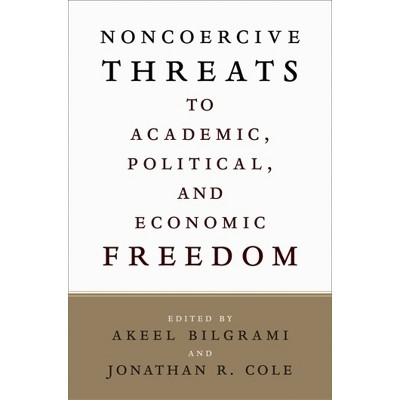Sponsored

Freedom, in Context - by Borna Radnik (Hardcover)
$115.99
In Stock
Eligible for registries and wish lists
Sponsored
About this item
Highlights
- G.W.F. Hegel was a radical and incisive thinker, whose ideas have shaped the face of political philosophy.
- About the Author: Borna Radnik is an independent scholar who has published with Radical Philosophy, Continental Thought and Theory, and Crisis and Critique.
- 256 Pages
- Philosophy, Social
Description
Book Synopsis
G.W.F. Hegel was a radical and incisive thinker, whose ideas have shaped the face of political philosophy. With questions of political agency and free will as urgent as ever, this book reintroduces Hegel's ideas of freedom and the weight that it carries in the political, economic and social contexts of the 21st century.Examining the concept of freedom from a Hegelian Marxist perspective, Freedom, in Context argues that the essential relation between self-determination and causal necessity is a multifaceted process to be viewed through historical, temporal, logical and ontological lenses. Using examples from the Black Lives Matter movement, environmental justice, economic inequality, and democratic uprisings in Iran, the value of Hegel's philosophy is emphasised in contexts beyond the colonial, Eurocentric tendencies of his worldview. Emphasising the central role of temporality and history in the conception of free will gives this new reading of Hegel real practical import for the pressing political issues of our time.
Review Quotes
"In a world with so many Hegels it can sometimes be very hard to find the real one. Borna Radnik makes a very compelling case for a radical interpretation of the Prussian polymath: the defender of freedom and struggle within history. An extraordinary work of scholarship, Freedom in Context makes a vital contribution to the debates around Hegel's legacy and marks the long awaited debut of a major new philosopher." --Matthew McManus, Lecturer in Political Science, University of Michigan, USA
"Borna Radnik's Freedom, in Context marks a breakthrough in the understanding of freedom. Through a spellbinding reading of Hegel, Radnik reveals how freedom always emerges in a context and yet carries a universal bearing that defies context. Hegel here becomes the philosopher of freedom not in spiteof, but because of, his commitment to the exploration of historical context. Radnik's book puts into practice Hegel's own dialectical method as a way to make sense of Hegel himself." --Todd McGowan, Professor of English at the University of Vermont, USA
About the Author
Borna Radnik is an independent scholar who has published with Radical Philosophy, Continental Thought and Theory, and Crisis and Critique. He has contributed to the anthologies Subject Lessons: Hegel, Lacan, and the Future of Materialism, and Creolizing Frankenstein.Dimensions (Overall): 9.21 Inches (H) x 6.14 Inches (W) x .63 Inches (D)
Weight: 1.19 Pounds
Suggested Age: 22 Years and Up
Number of Pages: 256
Genre: Philosophy
Sub-Genre: Social
Publisher: Bloomsbury Academic
Format: Hardcover
Author: Borna Radnik
Language: English
Street Date: November 28, 2024
TCIN: 1001845429
UPC: 9781350430044
Item Number (DPCI): 247-11-4185
Origin: Made in the USA or Imported
If the item details aren’t accurate or complete, we want to know about it.
Shipping details
Estimated ship dimensions: 0.63 inches length x 6.14 inches width x 9.21 inches height
Estimated ship weight: 1.19 pounds
We regret that this item cannot be shipped to PO Boxes.
This item cannot be shipped to the following locations: American Samoa (see also separate entry under AS), Guam (see also separate entry under GU), Northern Mariana Islands, Puerto Rico (see also separate entry under PR), United States Minor Outlying Islands, Virgin Islands, U.S., APO/FPO
Return details
This item can be returned to any Target store or Target.com.
This item must be returned within 90 days of the date it was purchased in store, shipped, delivered by a Shipt shopper, or made ready for pickup.
See the return policy for complete information.
Frequently bought together

$18.88
MSRP $27.00
Buy 2, get 1 free select books, music & movies
4.8 out of 5 stars with 571 ratings

$10.38 - $23.82
was $18.00 - $38.00 New lower price
Buy 2, get 1 free select books, music & movies
4.6 out of 5 stars with 193 ratings

$15.68
Buy 2, get 1 free select books, music & movies
4.8 out of 5 stars with 190 ratings
Trending Philosophy

$13.99 - $23.05
MSRP $25.00 - $40.00
Buy 2, get 1 free select books, music & movies
4.4 out of 5 stars with 198 ratings

$15.00
MSRP $25.00
Buy 2, get 1 free select books, music & movies
4.5 out of 5 stars with 4 ratings

$10.23
was $10.78 New lower price
Buy 2, get 1 free select books, music & movies
4.6 out of 5 stars with 22 ratings

$8.18
MSRP $11.00
Buy 2, get 1 free select books, music & movies
4.8 out of 5 stars with 5 ratings

$12.69
MSRP $22.99
Buy 2, get 1 free select books, music & movies
5 out of 5 stars with 1 ratings

$7.26
MSRP $12.00
Buy 2, get 1 free select books, music & movies
4 out of 5 stars with 2 ratings
Discover more options

$15.89 - $19.99
MSRP $18.99 - $28.00
Buy 2, get 1 free select books, music & movies
4.9 out of 5 stars with 7 ratings

